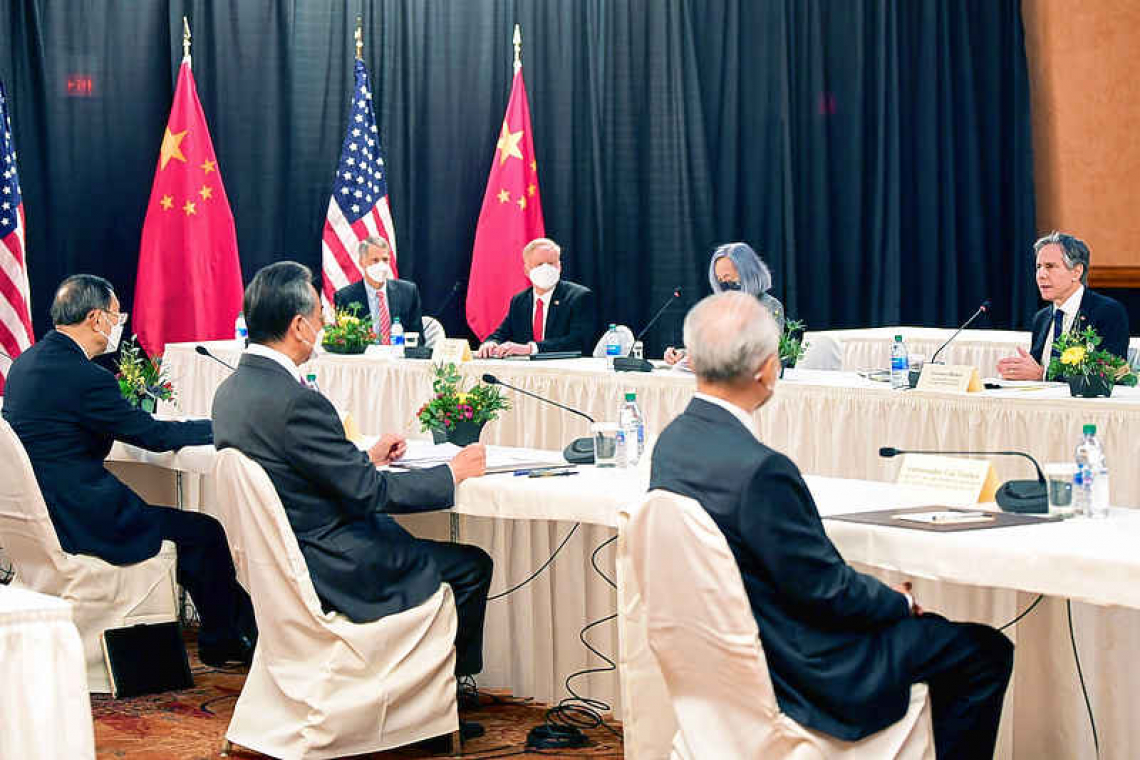ANCHORAGE, Alaska--The United States and China leveled sharp rebukes of each others' policies in the first high-level, in-person talks of the Biden administration on Thursday, with deeply strained relations of the two global rivals on rare public display during the meeting's opening session in Alaska.
The United States, which quickly accused China of "grandstanding" and violating the meeting's protocol, had been looking for a change in behaviour from China, itself having expressed earlier this year a hope to reset sour relations. On the eve of the talks, Beijing had presaged what would be a contentious meeting, with its ambassador to Washington saying the United States was full of illusions if it thinks China will compromise.
Sparring in a highly unusual extended back-and-forth in front of cameras, U.S. Secretary of State Antony Blinken and national security adviser Jake Sullivan opened their meeting with China's top diplomat Yang Jiechi and State Councilor Wang Yi in Anchorage, fresh off of Blinken's visits to allies Japan and South Korea.
"We will ... discuss our deep concerns with actions by China, including in Xinjiang, Hong Kong, Taiwan, cyber attacks on the United States, economic coercion of our allies," Blinken said in blunt public remarks.
"Each of these actions threaten the rules-based order that maintains global stability," he said.
Yang responded with a 15-minute speech in Chinese while the U.S. side awaited translation, lashing out about what he said was the United States' struggling democracy, poor treatment of minorities, and criticizing its foreign and trade policies. "The United States uses its military force and financial hegemony to carry out long arm jurisdiction and suppress other countries," Yang said.
"It abuses so-called notions of national security to obstruct normal trade exchanges, and incite some countries to attack China," he added.
"Let me say here that in front of the Chinese side, the United States does not have the qualification to say that it wants to speak to China from a position of strength," Yang said. "...the U.S. side was not even qualified to say such things, even 20 years or 30 years back, because this is not the way to deal with the Chinese people..."
Apparently taken aback by Yang's remarks, Blinken held journalists in the room so he could respond. Sullivan said the United States did not seek conflict with China, but would stand up for its principles and friends. He touted this year's Mars rover landing success, and said the United States' promise was in its ability constantly to reinvent itself.
What is typically a few minutes of opening remarks in front of journalists for such high-level meetings lasted for more than an hour, and the two delegations tussled about when media would be ushered out of the room. Following the exchange, a senior U.S. administration official said China had immediately "violated" agreed-to protocol, which was two minutes of opening statements by each of the principals.
"The Chinese delegation ... seems to have arrived intent on grandstanding, focused on public theatrics and dramatics over substance," the official told reporters in Alaska.
The United States would continue with its meeting as planned, the official said, adding that "exaggerated diplomatic presentations often are aimed at a domestic audience."
Before taking office, U.S. President Joe Biden had been attacked by Republicans who feared his administration would take too soft an approach with China. But in recent weeks, top Republicans have given the president a gentle nod for revitalizing relations with U.S. allies in order to confront China, a shift from former President Donald Trump's go-it-alone "America First" strategy. While much of Biden's China policy is still being formulated, including how to handle the tariffs on Chinese goods implemented under Trump, his administration has so far placed a stronger emphasis on democratic values and allegations of human rights abuses by China.







